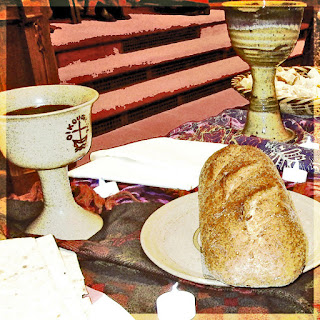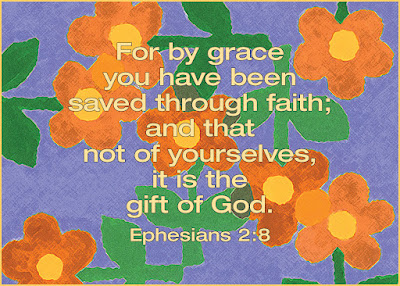How was your Lent?
Did you participate in weekday or weeknight services and/or soup suppers? Did you grow from a special devotional or scripture study on your own or as a family? Did you extend any extra service to nearby neighbors or within your extended community?
What do you especially hope for during the Great Fifty Days of Easter and beyond?
Passover / Easter
The Council of Nicaea (325) that gave us the Nicene Creed calendared Easter for the first Sunday after the first full moon after the vernal equinox.This year Easter is early, Passover is late. These great festivals of freedom and liberation focus on remembering God's acts of deliverance from death. Seder participants recount the Exodus narrative of Israel's wayfaring from slavery into the gift of the promised land with symbolic fresh food that no longer depends upon empire—they sometimes call it "eating history." After Lent ends, Christians retell and re-enact their experience of death and resurrection with the Triduum or Three Days: One Liturgy in Three Acts.
Triduum – Three Days
• Maundy – Mandate or Command – Thursday
The Three Days is a single liturgy in three acts. It begins with Maundy Thursday worship that concludes without a benediction; Maundy Thursday worship often ends with the worship space stripped and in darkness as everyone leaves quietly. Historical Lenten practice waits until Maundy Thursday to pronounce absolution or forgiveness to the gathered assembly that confessed their sins on Ash Wednesday.
• Good Friday
Good Friday, the day of Jesus' death, is Act II. Although the Revised Common Lectionary specifies scripture readings for Friday, many churches' traditions include other scriptures such as noon through 3 pm with Jesus' seven last words or statements, reading or singing one of the full scriptural passion narratives in the evening, or something else.
• Holy Saturday
The day nothing apparently happens is the day everything actually happens. Theology of the cross especially lifts up this day before Easter when we almost hang suspended in time anticipating gifts of rebirth, of spring, of new life.
• Easter / Resurrection
Easter is fifty days, a week of weeks! The Day of Pentecost is the fiftieth day of Easter. The Three Days/Triduum liturgy concludes by celebrating Jesus' resurrection. Very late Saturday afternoon, Saturday evening, or extremely early Sunday morning the Vigil of Easter revisits the meta-narratives of creation and of deliverance from death to life in the Exodus and Passion/Easter stories. Many churches and communities offer a Sunrise Service; the regularly scheduled worship at the usual time frequently features brass, often percussion, and a glorious choir. In this Covid-influenced time of smaller gatherings and reduced musical and other resources, congregational singing usually is the best of the entire year.
1 Corinthians 11:23-26In words, in actions, and with food, God's people Israel remembered their passage from slavery into freedom; when the church obeys Jesus by breaking bread and pouring out wine, part of the liturgical action includes retelling the story of God's people from creation through redemption in order to make it part of our own history.
23 For I received from the Lord what I also handed on to you, that the Lord Jesus on the night when he was betrayed took a loaf of bread, 24 and when he had given thanks, he broke it and said, "This is my body that is for you. Do this in remembrance of me."
25 In the same way he took the cup also, after supper, saying, "This cup is the new covenant in my blood. Do this, as often as you drink it, in remembrance of me." 26 For as often as you eat this bread and drink the cup, you proclaim the Lord’s death until he comes.
So it's not only about our Savior for each of us, for everyone gathered in person or virtually; remembering becomes about all of us throughout the history of the cosmos. We recollect how God has been with us and led us, how even those hard days didn't last forever…For the apostle Paul, the gospel is death and resurrection, though notice the founding narrative from Corinthians mentions only Jesus' death.
Today is Thursday; tomorrow's Friday—Sunday's coming!
What shall I render to the Lord
For all his benefits toward me?
I will take the cup of salvation,
And call upon the name of the Lord.
I will offer the sacrifice of thanksgiving,
And will call upon the name of the Lord.
I will pay my vows to the Lord
Now in the presence of all his people,
In the courts of the Lord's house,
In the midst of you, O Jerusalem.








